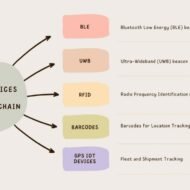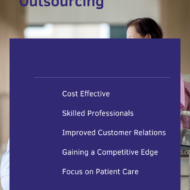Currently Browsing: Supply Chain Management
Posted by Managementguru in Operations Management, Supply Chain Management
on Oct 31st, 2022 | 0 comments

Manufacturing managers have a lot of responsibilities. The flow of production runs through them, and their decision-making skills can have tangible consequences on the balance sheet of a business. With these three skills mastered, any manufacturing manager can become the engine that powers a successful business. Supply Chain Management This is one of the most important skills a manufacturing manager needs. No matter what sector of the manufacturing industry you work in, the manufacturing team is a part of a supply chain. Materials come in, and products go out. You need to be able to handle the logistical challenges that come with managing the constant flow of both raw materials and the finished product. The speed of this flow governs the capacity and potential of the business. The more you can do in less time, the more capacity and potential for profit your manufacturing process has. Product Development and Knowledge Not only do you need to know a lot about the products you are manufacturing, but you also need to have a knowledge of products, production processes, market demands, and methods of product development. Your position as a manufacturing manager puts you in a unique position to understand how a product is manufactured, and why. You can use your experience to inform both design and marketing processes to help develop better products that give more value to customers while being simpler to produce. At this level of management, you need to have a wider view of the business to make better decisions and better products. You can learn more about product development with ICAgile certifications in Product Ownership, get certification in your existing skills, and become a recognized expert in your field. This can be very beneficial to your resume, and your role in your workplace. Leadership and Team Building When people think of the manufacturing process, they often think of large machines that build a product piece by piece on a long, automated line that weaves its way through a warehouse. The truth is that a manufacturing process is only ever as good as the people that operate it. You can have highly efficient machinery, and automate nearly all of its processes, but without the right operation, they are useless metal. Manufacturing managers need to be able to both hire and inspire. You will be involved in the hiring process and must be able to spot signs of a good worker who will fit in with the team. You need to inspire the team daily too. The work on a production line, and all across the manufacturing process, can become monotonous, much more than the average job. It has huge benefits though and can be a lot of fun. If you work hard at keeping your workers enthused and involved, you will be able to grow both as a manager and as a business. These skills will all help you to develop as a manufacturing manager and be successful at it. You need to carefully balance the management of man and machine so that they can work in harmony together. Become an expert in your field by honing these skills and using them to push up your production...

Posted by Managementguru in How To, Project Management, Supply Chain Management
on Jun 8th, 2022 | 0 comments

Managing a construction business is no easy task. The sector is capital intensive and demands consistent financing to maintain a steady supply of construction materials and keep operations going. A huge part of becoming a successful construction business owner depends on efficient management. If you’re looking to break into the industry or you’re a current manager after some guidance, these below tips will help you effectively manage a construction business. Use the Right Tools and Products Construction tools and products evolve with the industry. As a construction business owner, you need to be equipped with current tools and resources fueling the industry, leveraging them for effective outputs. Investing in construction tools can be a dicey situation and purchasing isn’t always the best way to invest in tools. You can purchase drills, hammers, trowels, and other essential tools for your site workers. However, heavy-duty equipment like excavators and backhoe loaders can be rented rather than bought. Buying ties you to storage and maintenance costs which might be financially draining. Both options, however, have their pros and cons. Therefore, assessing them before making your investment decision can never go amiss. For construction supplies, it’s important to deal with the right retail partners. They can afford you comfortable payment and usage terms for all materials, including those needed for modular building products. Make Safety a Priority The construction industry is a hotspot for work-related accidents. The U.S. Occupational Safety and Health Administration says that fall hazards are the leading cause of accident injuries on construction sites nationwide. The U.S. Bureau of Labor Statistics also revealed that over 150,000 fall accidents occur yearly. As a business, these accidents can dampen employees’ morale and cost your business a lot of medical, severance, and relief expenses. In critical conditions, an accident on your site can cost you your operating license and affect your operational relationships with partners and financiers. Therefore, it’s crucial to prioritize safety on your construction site. Ensure all workers have their safety apparel on before visiting the worksite. Maintain ladders and operational tools to avoid failure while on the job. Developing a periodic program to sensitize employees on the best safety practices can also help a great deal. Leverage Data and Technology The construction industry is no exception to the continuous transformation of how we work through technology. Modern construction tools have become smarter, demanding site workers to be more tech-savvy. Many construction businesses have also grown more resilient by using data to mitigate risks and manage predictability. They deploy big data systems like Artificial Intelligence (AI) and Machine learning (ML) to harness effective insights even before the project stages. These systems help model structures and determine structural defects at the project blueprinting stage. Tech systems also help contractors reduce uncertainties like the impact of changing weather conditions on construction progress. Avoid Wasteful Preparations Research shows that 98 percent of megaprojects suffer cost overruns, and about 77 percent do not meet their construction deadlines. Wasteful operations are a travesty of efficiency. So, construction managers need strict levels of accountability to manage waste, from materials to financing. Increase Your Cash Flow Construction employees typically receive payments on a bi-weekly basis, so you’ll need more money to manage running costs and fuel the progress of your construction business. Spreading out your costs, early invoice communication, and avoiding underbilling are a few best practices to help you increase your cash flow. All in all, the construction industry is booming and new companies have a significant potential to attain profitability – the industry has a current valuation beyond a trillion dollars. Getting a piece of this cake requires a lot of discipline and consistent efforts, and...

Posted by Managementguru in Artificial Intelligence, Business Management, Operations Management, Productivity, Sales, Supply Chain Management, Technology
on Mar 25th, 2022 | 0 comments

Supply chain management (SCM) is the broad range of activities needed to plan, control and execute a product’s flow, from procuring raw materials and production through distribution to the final customer, in the most streamlined and cost-effective way possible. Ensuring all supply chain components are running as smooth as possible helps businesses to provide on-time delivery of products and services, with changing consumer demands and supply chain disruptions brought about by the recent pandemic. This blog post’s focus is to throw some light on “How IoT aka Internet of Things is bringing about a big impact” in the future of supply chain activities. Let’s first understand the 7 Principles of SCM Adapt supply chain based on service needs of every customer segmentCustomize logistics network for each customer segmentAlign demand planning across the supply chainDifferentiate product closer to customer’Outsource strategicallyDevelop information technology that support multi-level decision makingAdopt both service and finance metrics Now let’s look at the Impact of IoT in the future of supply chain. Asset Tracking One of the top and fundamental function of IoT in supply chain is asset tracking. Locating containers, objects and personnel is considered way important among the organizations Through RFID and GPS sensors, real-time location of a product, truck or shipping container can be known by logistics operators. Fleet Management Fleet management is another area to improve the efficiency of logistics operations. Through IoT it is now possible to connect all fleets to each other, which allows the fleet dispatchers to collect breadth of data from their fleet operations. Data included are: 1. Weather conditions 2. Traffic situations 3. Driving pattern and 4. Average speed When thoroughly analysed, this data can help logistics operators to find more efficient routes, manage driver head counts, save on fuel cost and optimize their fleet reliability, availability and efficiency. Tracking and Monitoring Inventory Levels in Real Time IoT sensors play a great role in tracking and monitoring inventory levels in real time. Amazon is now using Wi-Fi robots to scan product codes present on the products to keep track of their inventory levels. Bluetooth tags and beacons offer tracking data in more confined areas- many retail stores are using these tracking technology software to monitor customer traffic and provide marketing messages to their customers. Vendor Management By asset tracking., organizations tend to come out with high quality output, which in turn improves their relationship with the vendors. A recent survey states that up to 65% of the value a company’s product /service is derived from its suppliers. Predictive Maintenance Being an asset intensive process, right from production machinery to warehouse equipment and delivery vehicles, these assets need to be continuously monitored to ensure their functional efficiency. Smart sensors help the logistics operators gauge if a particular asset needs to be serviced ahead of time. This reduces considerable asset down time and asset failure, thus saving cost including maintenance...

Posted by Managementguru in Business Management, How To, International Business, Marketing, Strategy, Supply Chain Management
on Aug 5th, 2021 | 0 comments

The decision to enter global markets is usually one that makes or breaks a business. For some corporations, international expansion provides them a one-way ticket to paradise. For others, it can cause financial collapse and total disaster. At the end of the day, it comes down to careful planning, strategizing, execution, and (of course) a little luck. Thankfully, there are seven proven tips you can follow that will enable you to successfully enter global markets and build upon your market position. Let’s get started. Seven Proven Tips to Enter Global Markets Successfully 1. Localize your content One of the most important steps when entering global markets is to localize your content. But what does this, exactly? Think about your existing marketing content. There’s a lot of it, right? Website content, product packaging, messages in your online store – you get the idea. Now, you can’t just magically throw all this content into Google Translate and serve it up to your new international customers. They won’t buy it – not even a little bit. Poor translation is immediately noticeable to native people, and it will make your business look cheap and unprofessional. This is where content localization comes into play. For example, you might be an American business looking to market your products in China. Through localizing your content, you don’t just translate the words into Chinese. Instead, you localize everything, meaning all your content is spelled, phrased, and perfectly designed so that it resonates with local people. Even your use of emojis is important when localizing your content – as certain emojis hold more emotional value in certain cultures! To successfully localize your content, you’re going to need localization software provided by experts. This will enable you to successfully market your products and services to other countries – which is pretty amazing. 2. Create a workforce plan Effective global expansion is largely dependent on your team, whether you employ 5 or 1000 people. You will need to carefully build a plan to accommodate your expansion. Will employees be able to work remotely? Will you need to new-hires from your chosen expansion countries? All of this must be carefully thought through. 3. Focus on supply chain efficiency Naturally, your supply chain is going to change. Supplying products to new countries means you will need to decide on exportation methods, as well as which supplier (or suppliers) you’re going to use. 4. Analyze your target markets The prospect of entering new (and unknown) markets can be scary, to say the least. But through detailed analysis, you can gain a clear understanding of market share, competitors, and what you will need to do to establish your brand. 5. Tick all the legal boxes Different countries come with different legal procedures, from tax schemes to employment practices. You will need to tick every box to ensure that you don’t land yourself in hot water (for example, underpaying employees or not paying enough taxes). 6. Use the power of social media Social media is a universal language that every country speaks. This is great – not to mention convenient – as it gives you a great shot at establishing your business online, such as through Twitter or Facebook ad campaigns that are tailored for natives. 7. Finally, network with local businesses Local businesses in your new markets will come with useful resources and knowledge that you can use to your advantage, ultimately providing you a foothold in the...

Posted by Managementguru in Business Management, Productivity, Project Management, Supply Chain Management
on Apr 2nd, 2021 | 0 comments

Outsourcing as a concept comes up in a lot of discussions about things like customer service and IT, but ultimately, it’s something that can be done in any industry. Those who work in the medical industry could potentially benefit from outsourcing some of their functions, as it frees up more time for patient care, sales and other important things, and here are some areas you might want to outsource. 1. Logistics If your contribution to the medical industry is manufacturing or providing equipment, from large machines to PPE, then logistics are bound to be important. You need to get your products into the clients’ hands as quickly as possible, and in one piece too. Consider outsourcing to the experts in medical logistics from Rhenus High Tech, as they can find the best way to set up your system and get things from A to B quickly and inexpensively. 2. IT IT outsourcing is quite common, as a lot of industries struggle to find talent on their own shores, so need to look overseas. This can also save them a lot of money. In the medical industry, some of the IT that is outsourced includes: Data entryCodingCybersecuritySoftwareTechnical support If you work in the medical industry and have struggled with IT and need support, then outsourcing may be a good choice for you. 3. Accounting Medical businesses often have a large turnover, which means a lot of money that needs to be dealt with. Whether it’s filing your tax return or financial planning for the future, outsourcing your accounting functions makes a lot of sense. Not only does this save you money on accounting costs, working with an outsourced accountant can mean a faster turnover and great results. 4. Admin Day-to-day admin can be extremely annoying and time-consuming. Whether it’s sending out reminder letters or updating records, your admin team will no doubt be very busy keeping up to date with your admin needs. Outsourcing admin saves you so much time. You simply send all the little pieces of work you need done to a central admin base, and it’s sorted out for you, with the completed work simply e-mailed back or uploaded to your server. 5. Manufacturing Many of the skills needed for manufacturing can be difficult to find locally, and for some medical companies, it makes sense to have manufacturing processes done overseas. While this can make importing goods into the country more complicated, it can overall save you money, as parts and labour costs are often cheaper. Manufacturing overseas can also be more efficient at times. While you have to factor in shipping times, working with skilled people overseas can get your jobs done faster, so overall times can be lower, and you can have a better turnaround. If you are looking to save time and money, then outsourcing can be extremely helpful in the medical industry. It means you can get more important things done and focus on what matters, knowing that the little things are...










